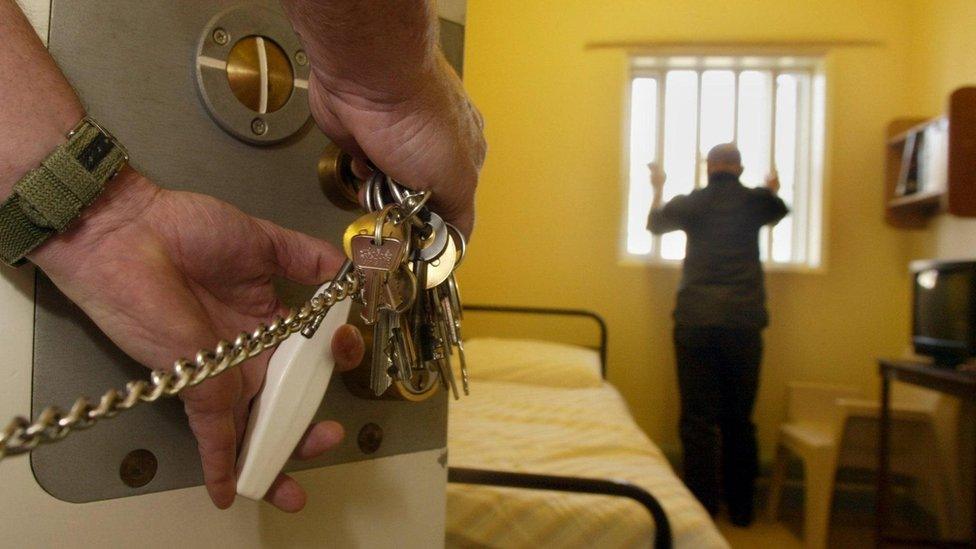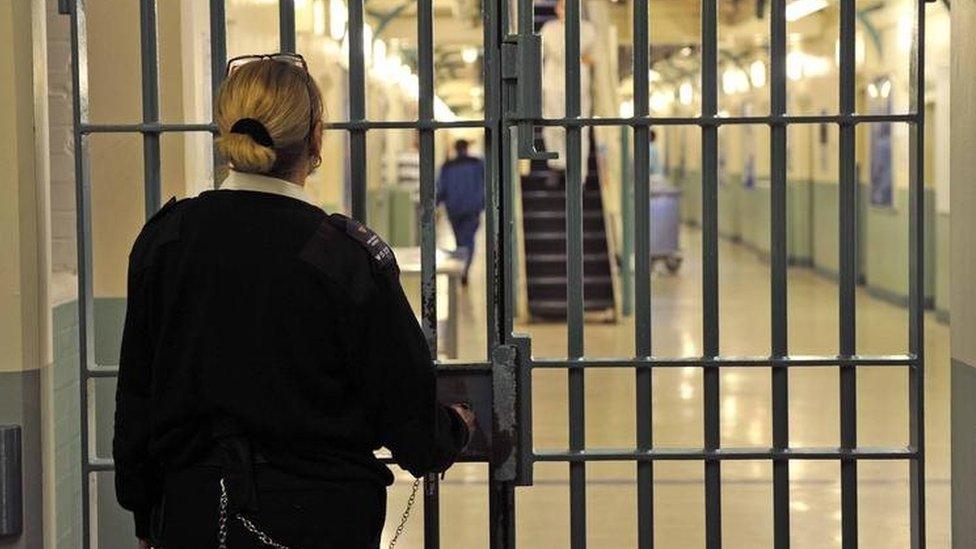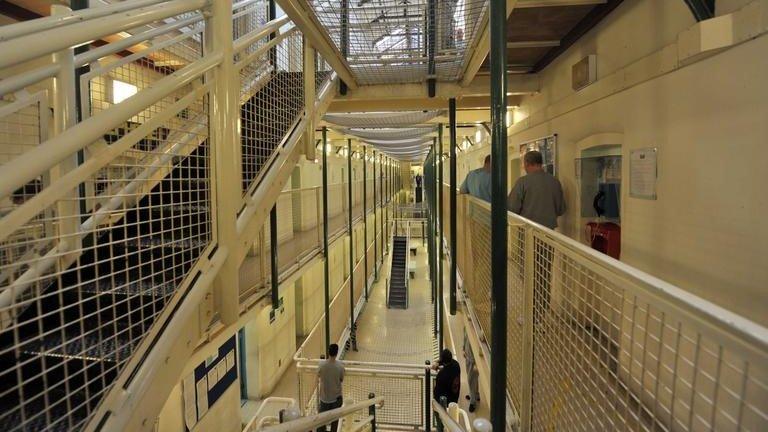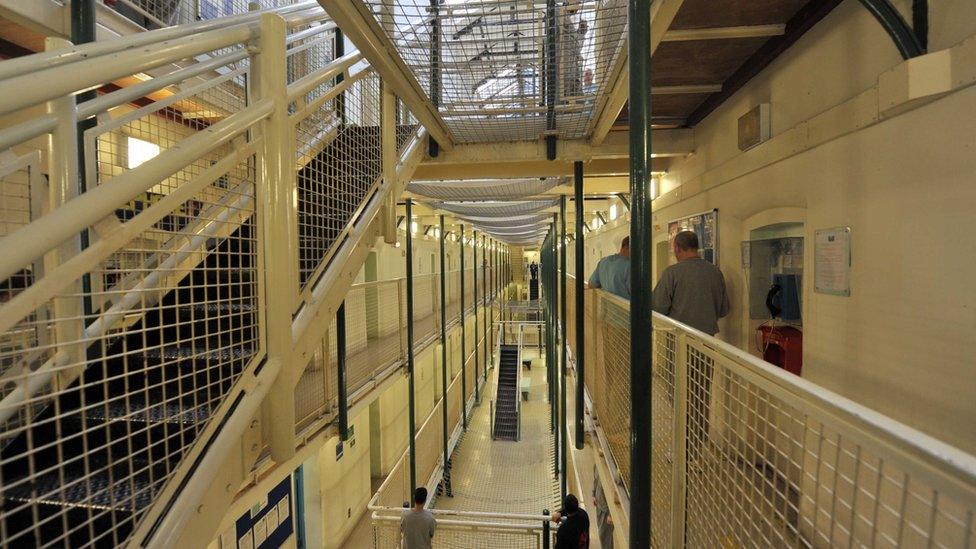Prisoner voting compromise ends dispute with European court
- Published

The justice secretary said the plans would affect about 100 offenders at any one time
A lengthy dispute over prisoner voting rights between the UK and European Court of Human Rights (ECHR) has ended.
Since 2005, the court has said the UK government's blanket ban on prisoner voting breached human rights laws.
Voting rights will now be given to about 100 inmates in England and Wales released on "temporary licence".
The Committee of Ministers of the Council of Europe, which supervises the implementation of ECHR judgements, accepted the plans "with satisfaction".
Justice Secretary David Lidington put forward proposals last month to address an "anomaly" in the system around prisoners on temporary licence.
Currently, those wearing an electronic tag in the community can vote, but offenders out on temporary licence cannot.
The change would mean about 100 extra prisoners will be entitled to cast their ballot.
The Committee of Ministers said it "strongly encouraged" the UK government to implement the proposals as soon as possible.
'Physically sick'
For more than a decade, successive governments have resisted changing laws meaning prisoners serving a custodial sentence cannot vote in any elections - despite a string of cases reaching the European court.
In one 2015 case involving 1,015 prisoners, the court ruled there had been a violation of Article 3 of the first protocol to the European Convention on Human Rights - the right to a free election.
Mr Lidington said no offenders would be granted release in order to vote as a result of the changes.
He said: "Our estimate is that these changes to temporary licence will affect up to 100 offenders at any one time and none of them will be able to vote from prison."
But Tory MP Philip Davies said of the plans: "I think giving the vote to any prisoners is idiotic."
Former prime minister David Cameron previously said the idea of giving prisoners the vote made him feel "physically sick".
- Published2 November 2017

- Published10 February 2015

- Published30 October 2017
